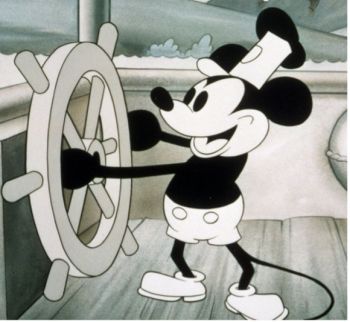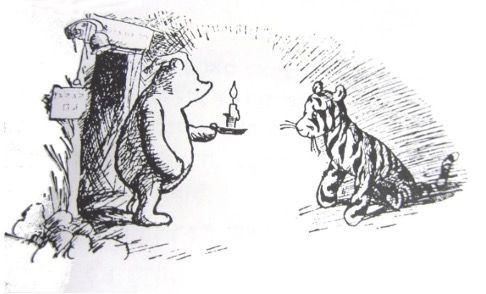In the past weeks, you may have come across news stories highlighting the expiration of copyright protection for the original version of Mickey Mouse. This development has sparked some misconceptions with certain individuals assuming that any commercial use of Mickey Mouse is now legal due to the famous character entering the public domain in the United States. It's essential to clarify that this is not entirely the case, as explained below.
Copyright in the United States
When delving into the evolution of copyright in the United States, it's impossible to overlook the influence that Disney has wielded over the years. In 1998 the United States Congress passed the Copyright Term Extension Act, which extended the term of protection for creative works in the United States to 95 years after their initial publication.
The act has even jokingly been called the Mickey Mouse Protection Act, as Disney was pushing hard to safeguard the longevity of their beloved characters. No later extensions to the term have been granted, despite the hopes of copyright owners.
As a result of these developments, the iconic Mickey Mouse, who made his debut in the 1928 animated classic "Steamboat Willie" has now officially entered the public domain in the United States.

In 1904 the character of Peter Pan first appeared in a play in London, which were then followed up by a 1911 novel named "Peter and Wendy". However, it wasn't until 1928 that the finalized play script was released with the name "Peter Pan; or, The Boy Who Wouldn't Grow Up". Despite arguments as to when the copyright term began for Peter Pan, there is no longer any doubt as to whether Peter Pan has officially entered the public domain in the United States as well.
Another mentionable set of loveable characters that has entered public domain is Winnie-the-Pooh and his always excited friend Tigger. The original Winnie-the-Pooh entered public domain in January 2022, and was followed by Tigger January this year.
This shift marks a significant chapter in the ongoing narrative of copyright law, raising questions about the future trajectory of intellectual property and the dynamic interplay between entertainment giants and legislative frameworks.
So, can we use Mickey, Pooh, and their friends?
When a copyright protected work enters public domain, it means, in theory, that others can freely utilize the work for commercial purposes as there is no longer any copyright to the work.
But as usual when it comes to law there are always exceptions to the rules.
As most viewers of the original Mickey Mouse from Steamboat Willie will notice, this early version is quite different from the version of Mickey Mouse used in newer movies, cartoons, and theme parks. Same goes for Winnie-the-Pooh, given that the version most people associate with the character is the lovable yellow bear sporting a red shirt. However, the first version of Pooh with a red shirt did not appear until 1932.

It is therefore important to stress that only the original Steamboat Willie version of Mickey Mouse and the original shirtless Winnie-the-Pooh have entered public domain in the United States, and that this does not extend to any subsequent, newer, or more modern versions produced since.
These distinctions highlight a crucial aspect of copyright law – while the core concept of public domain suggests unrestrained use, nuanced exceptions and variations in subsequent iterations underscore the complexity inherent in navigating the legal landscape of intellectual property.
Consequently, any unauthorized commercial use of newer versions of Mickey Mouse or any cloth-wearing Pooh's are therefore still to be considered copyright infringements in the United States.
What can right holders do?
The original thought behind copyright were to protect and encourage the creative efforts of authors and producers of creative works, by providing incentives for exploring the creative processes. Once copyright protection expires, the work should enter the public domain, thereby becoming accessible for use by everyone.
But intellectual property law is a complex and nuanced discipline, and as time has passed, the different aspects of intellectual property law have intertwined and complicated the simplicity that was originally intended to govern the length of copyright protection.
In this regard, Disney has secured trademark registrations in the US for both the word mark "MICKEY MOUSE" and various figurative versions of the character, and they are therefore equipped with an entirely different set of rules to safeguard their rights to the mischievous mouse.

(US trademark registration no. 5464657 showcasing
one example of Disney's Mickey Mouse trademarks).
In the years ahead, it will be interesting to see the extent of copyright protection afforded to the newer versions of Mickey Mouse, Winnie-the-Pooh and their friends, particularly in cases where individuals may be tempted to employ modified versions of the original Characters. Additionally, the breadth of protection offered by trademark registrations will play a pivotal role.
Unlike copyright protection, which has a limited duration, trademark protection can endure indefinitely. In this context, Disney's trademark registrations for Mickey Mouse play a crucial role in preventing deceptive use or any use that suggest an affiliation or association with Disney. It will be interesting to observe the extent to which Disney and other trademark owners takes a proactive stance in enforcing its trademark rights related to their characters.
Ultimately, these matters will be subject to the decisions of the United States courts.
Outside the United States
Various jurisdictions operate under different copyright models, each with its unique terms of protection.
Generally for the EU and their member states, copyright protection lasts for the lifetime of the creator plus 70 years. As the original Steamboat Willie Mickey Mouse has entered the public domain in the United States, it may also be exempt from copyright protection in some EU countries. However, copyright laws can still differ, and newer versions of Mickey Mouse or distinctive adaptations may still be protected.
China's copyright law provides protection for the life of the author plus 50 years. However, enforcement of copyright laws in China has been a topic of discussion and furthermore multiple domestic enterprises have already obtained registered trademarks for Mi Laoshu, Mickey Mouse's name in Mandarin.
Navigating these international legal landscapes presents additional challenges and underscores the need for a nuanced understanding of copyright and trademark laws in each jurisdiction.
Seek advice
Businesses should exercise caution and conduct thorough research before incorporating Mickey Mouse, Winnie-the-Pooh or any other derivative work into their operations. It's essential to respect intellectual property rights and ensure compliance with copyright laws to avoid legal repercussions.
In conclusion, while the expiration of copyright for the original Mickey Mouse is a noteworthy development, businesses must be diligent in understanding the nuances surrounding the use of this or other iconic characters to navigate potential legal complexities successfully.
Should you have any questions on copyright or trademarks in general, or requests regarding use of protected material, feel free to reach out.
The content of this article is intended to provide a general guide to the subject matter. Specialist advice should be sought about your specific circumstances.


